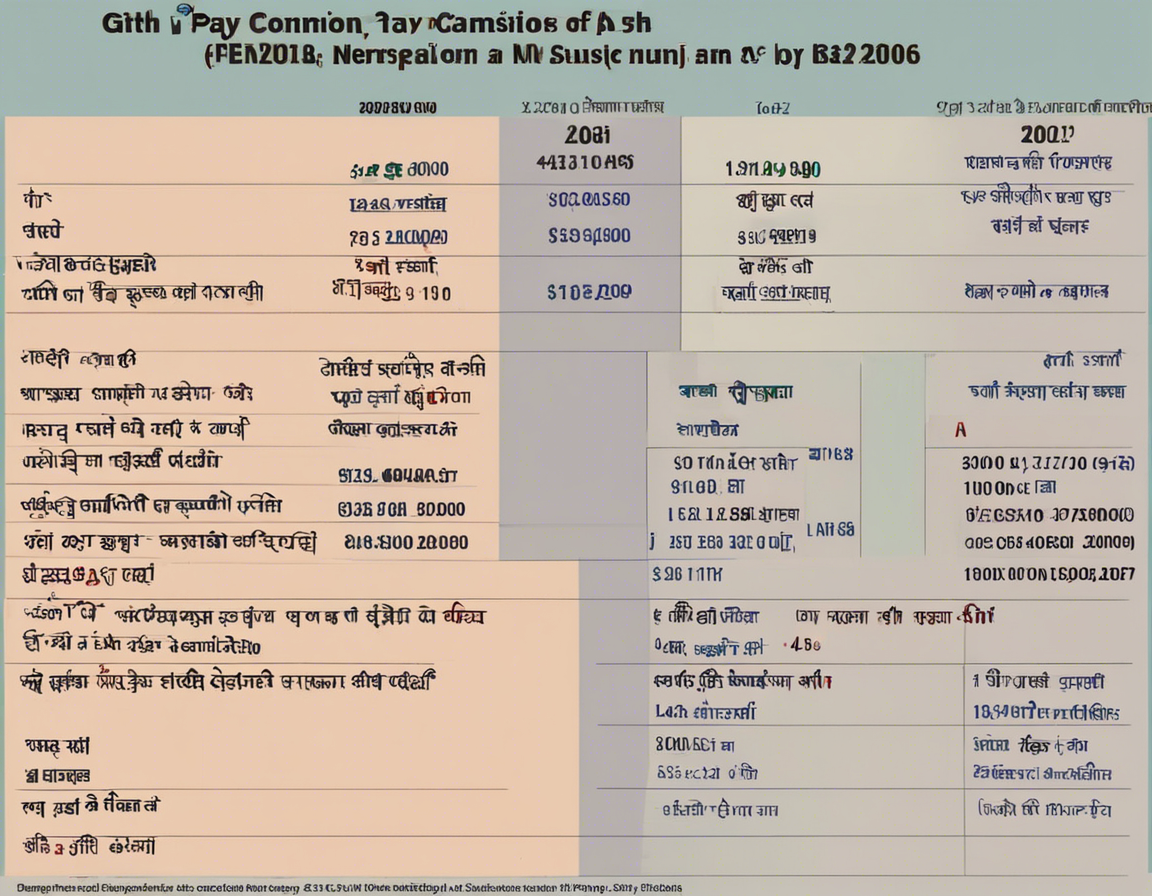The 8th Pay Commission is a vital component of the Indian bureaucratic and administrative system, responsible for recommending revisions in the salary structures of public sector employees. The recommendations made by the Pay Commission significantly influence the income and benefits of millions of government employees, pensioners, and armed forces personnel. Understanding the key dates related to the functioning of the 8th Pay Commission is crucial for those impacted by its decisions. Let’s delve deeper into the timeline of the 8th Pay Commission process.
Setting Up of the Commission
The process of setting up the 8th Pay Commission involves several significant steps:
Notification of Formation
The notification announcing the formation of the 8th Pay Commission is usually released by the Ministry of Finance. This notification outlines the responsibilities, terms of reference, and the timeline within which the Commission is expected to submit its recommendations.
Appointment of Chairperson and Members
After the notification, members of the commission are appointed by the Government, with a distinguished individual often chosen to head the commission as the Chairperson.
Commencement of Work
First Meeting
The commission typically holds its first meeting to discuss the scope of work, methodologies to be adopted, data collection process, and timelines for the submission of interim and final reports.
Data Collection
Extensive data collection is undertaken by the commission to understand the current economic scenario, financial constraints, inflation rates, expenditure patterns, and the impact of previous pay revisions on the exchequer.
Interim Reports
The commission might submit interim reports during the course of its work to provide updates on the progress made, challenges faced, and any preliminary recommendations.
Submission of Recommendations
Final Recommendations
After conducting thorough research, consultations, and analyses, the Pay Commission submits its final recommendations to the government. These recommendations encompass various aspects such as pay scales, allowances, pensions, and other benefits.
Government Review
Upon receiving the recommendations, the government reviews the report, considering the financial implications, feasibility, and potential impact on the economy.
Approval and Implementation
Once the government evaluates the recommendations, it approves the proposed revisions to the pay structure, which are then implemented for the concerned stakeholders.
Disbursement of Revised Payments
Arrears Calculation
In many cases, the revised pay structures are implemented with retrospective effect, leading to the calculation and disbursement of arrears to compensate for the period between the recommendation implementation date and the actual disbursement.
Increment Process
Increment cycles and timelines are updated based on the new pay scales, and employees start receiving revised salaries and allowances as per the approved recommendations.
Conclusion
The timeline of the 8th Pay Commission is a meticulously planned process that involves comprehensive research, analysis, consultations, and decision-making. From the formation of the commission to the submission of recommendations and the eventual implementation of revised pay structures, each stage plays a critical role in shaping the financial landscape for millions of public sector employees. Understanding these key dates is essential for all stakeholders impacted by the decisions of the Pay Commission.
FAQs
1. What is the role of the Pay Commission in India?
The Pay Commission in India is responsible for recommending revisions in the salary structures of public sector employees, armed forces personnel, and pensioners.
2. How often are Pay Commissions constituted in India?
Pay Commissions are typically constituted every ten years to review and recommend changes in the pay scales and benefits of government employees.
3. Are the recommendations of the Pay Commission binding on the government?
While the recommendations of the Pay Commission are not legally binding on the government, they are highly influential in determining the pay structures of public sector employees.
4. What factors does the Pay Commission consider while formulating its recommendations?
The Pay Commission considers various factors such as inflation rates, cost of living, economic growth, financial implications on the exchequer, and the impact of previous pay revisions.
5. How long does it take for the Pay Commission recommendations to be implemented?
The implementation timeline of Pay Commission recommendations varies, but it generally takes several months to a year from the submission of the final report to the actual disbursement of revised payments.
